Restorative Justice: A Different Approach to Discipline
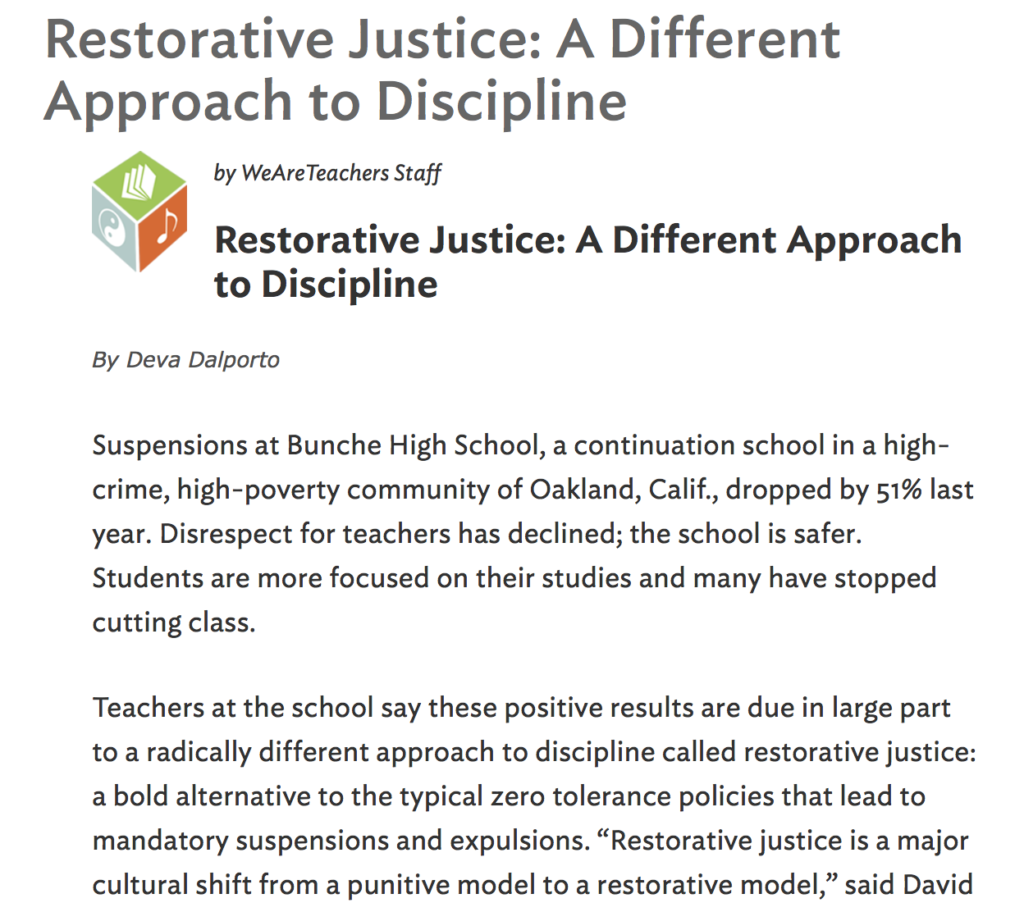
This article, from a teacher’s perspective, provides an overview of the rise of restorative practices in schools. It then discusses how one teacher works with students to build a respect agreement in the classroom. The same teacher discusses how using restorative discipline practices in the classroom helps her build relationships with students and allows them… Read More ›
How Misconceptions About Competency Education Could Undermine Equity
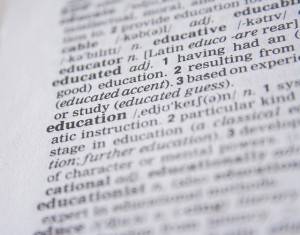
This article, the third in a CompetencyWorks series on equity in personalized learning, explores implications of the misunderstanding and misuse of terms within competency-based and blended learning. The author asserts these misunderstanding can lead to poor implementation, inequitable practices, and lower achievement. He reviews four common misconceptions, such as failing to understand the difference between “flexible pacing” and… Read More ›
Supporting Language & Content Learning in Math
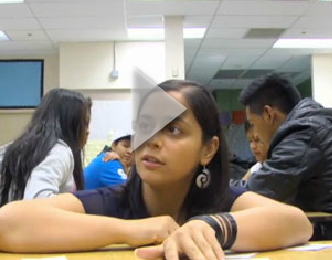
Patricia Segura, a 9th-grade English teacher at Fremont High School in Oakland, CA, allows viewers to spend a day in her classroom of “newcomer students.” A “newcomer student” is one who has lived in the United States for less than a year, and typically serve students from various grade levels. Segura walks viewers through the importance of supporting student… Read More ›
Redesigning School Accountability and Support: Progress in Pioneering States
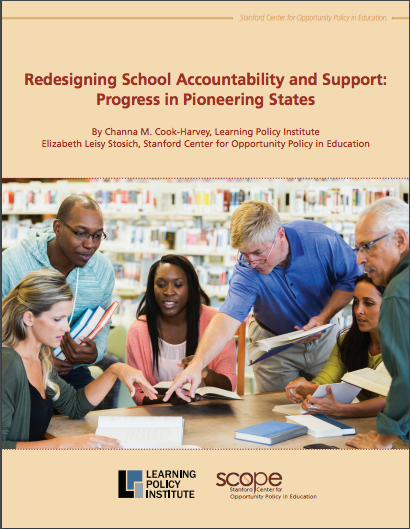
In a report presented by the Learning Policy Institute and the Stanford Center for Opportunity Policy in Education (SCOPE), “Redesigning School Accountability and Support: Progress in Pioneering States” examines the variety of ways these 10 states – including New Hampshire and Vermont – have tackled the challenge of redesigning their accountability systems to create educational… Read More ›
The Importance of High-School Mentors

This article stresses the importance of role models. When it comes to helping young people succeed, education experts and nonprofits are embracing the idea that a broad web of formal and informal role models is key. This video from The Atlantic documents the power that mentors can have at a defining juncture in the lives of… Read More ›
School Superintendents Association Calls for Shift to Personalized Learning in Public Policy Agenda

This article elucidates the public policy unveiled by the Connecticut Association of Public School Superintendents for 2016, reflecting its vision of schools that teach students to demonstrate mastery and receive more funding from the state. The organization identified three themes to advocate in 2016: equity, excellence, and innovation, with an emphasis on seeing a shift… Read More ›
Can an Increase in Empathy Lead to a Drop in Suspensions?

This article by EdWeek, takes an in-depth look at the findings of a study by Stanford University researchers published in the Proceedings of the National Academy of Sciences of the United States of America. The researchers worked with 31 math teachers in five diverse middle schools spread over three California districts, administering two online professional-development exercises… Read More ›
Student-Centered Learning Opportunities for Adolescent English Learners in Flipped Classrooms
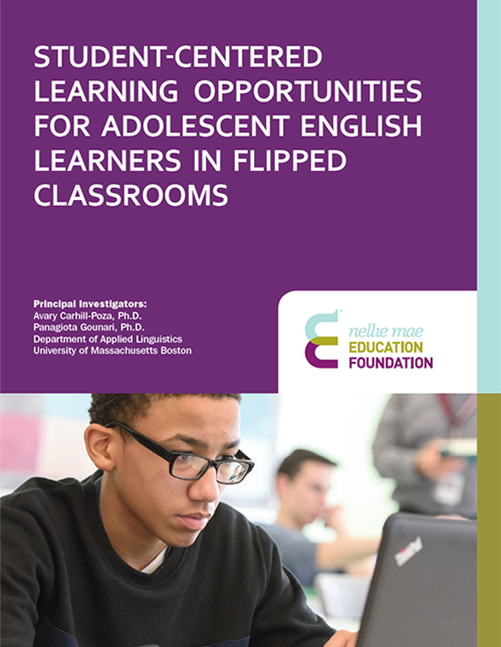
This study from the University of Massachusetts-Boston and the Nellie Mae Education Foundation examines how flipped learning can be utilized to improve the language and content acquisition of adolescent English language learners. As schools look to raise standards and close achievement gaps, they need effective strategies for serving English language learners, the fastest-growing segment of… Read More ›
How Effective Are ‘Career Academies’?

This article, written by Melinda Anderson, explores the benefits and the disadvantages of career academies. The article asserts that while these schools-within-schools blend traditional and technical courses to smooth the transition from high school to working life, they may be inadvertently propagating inequality. Career academies embrace many positive approaches such as strong personalized-learning environments, a… Read More ›
Signature Experiences: The Moments We Fall in Love With Learning

This article is about the hypothesis that signature experiences contain a vital set of insights for those who are designing “schools” and learning environments. Signature experiences motivate students to keep learning, to take initiative, and to carve out a future path for themselves in the world around them. This hypothesis has led to the question:… Read More ›
The Difference Between Being Eligible for College and Ready for College

This article discusses that in addition to teaching students fractions and conjunctions, many educators are increasingly grappling with how to address social and emotional skills like collaboration and students’ sense of belonging. Educators and academics across the country have come to agree that content knowledge isn’t enough to prepare students for life after high school. Several… Read More ›
Speeding up High School Reform in New England

This article discusses college readiness. While high school graduation rates are high in New England, Nellie Mae Education Foundation President & CEO, Nicholas Donohue notes that college readiness is not. In this op-ed for The Hechinger Report, Donohue asks: What does it mean to be truly ready for college? Source Organization: The Hechinger Report Visit the Resource